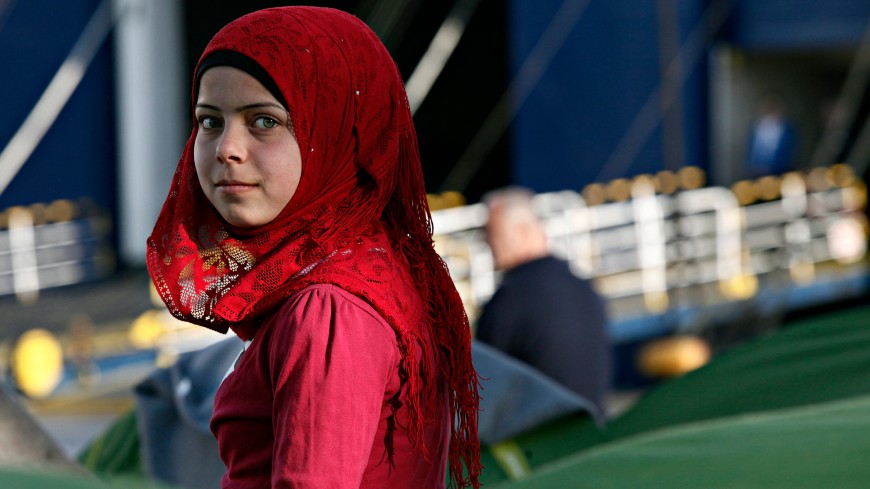From 14-15 September 2021, the Special Representative on Migration and Refugees, Drahoslav Štefánek, was invited to Belgrade for two migration-related meetings: a briefing session on the European Qualifications Passport for Refugees (EQPR) and the “Regional Conference on Alternatives to Immigration Detention in the Western Balkans”. At the briefing session, which was hosted by the Embassy of Slovakia in Belgrade and co-organised by the Council of Europe and the UNHCR, Ambassador Štefánek presented the EQPR project and highlighted that it is a tool to promote the integration of refugees, which is included in the new Council of Europe Action Plan on Protecting Vulnerable Persons in the Context of Migration and Asylum in Europe (2021-20125). “For instance, the EQPR helped find qualified refugees in the health sector during the pandemic, and only last week a training module was held for credentials evaluators assessing the qualifications of Afghan nationals”, he said. Serbia became the 12th country to join the project in June 2021, together with Armenia, Bosnia and Herzegovina, Canada, France, Germany, Greece, Italy, the Netherlands, Norway, Romania, and the United Kingdom.
On 15 September 2021, in his opening remarks at the “Regional Conference on Alternatives to Immigration Detention in the Western Balkans”, Ambassador Štefánek emphasised that the detention of migrants and refugees should be a measure of last resort and that the use of a variety of effective alternatives to detention has manifold benefits. He highlighted the Council of Europe´s work on supporting member states in strengthening their capacity to identify ways to make alternatives to the administrative detention of migrants more effective, ensuring compliance with immigration procedures while upholding human rights.
On 22 and 23 September 2021, the Special Representative visited Brussels to meet representatives of the United Nations, the European Union and a number of Brussels-based international NGOs. Among other topics, discussions mostly focused on the new Council of Europe Action Plan on Protecting Vulnerable Persons in the Context of Migration and Asylum in Europe (2021-2025) and its implementation.
On 23 September 2021, in Strasbourg, the Special Representative opened the international conference on “Statelessness and the right to a nationality in Europe”, together with Gillian Triggs, UNHCR’s Assistant High Commissioner for Protection. The conference was organised by the Council of Europe’s European Committee on Legal Co-operation (CDCJ) and UNHCR, the UN Refugee Agency. It brought together over 130 senior representatives of governments of member states, national authorities with expertise on nationality and statelessness issues, judges, representatives of international and regional organisations, civil society organisations and academics, as well as stateless individuals.
“This Conference plays an important role in inspiring collective action. Indeed, with a spirit of partnership, we can make statelessness a fact of the past”, said Gillian Triggs, UNHCR’s Assistant High Commissioner for Protection, who spoke at the event.
“Stateless persons are particularly vulnerable, subject to States’ obligation to provide them with special protection and assistance. The new Council of Europe Action Plan on Protecting Vulnerable Persons in the Context of Migration and Asylum in Europe (2021-2025) includes the elaboration of practical guidance to address vulnerabilities throughout asylum and migration procedures, including reception conditions”, said the Special Representative Štefánek.
On 30 September 2021, during the last day of the autumn plenary session of the Parliamentary Assembly of the Council of Europe, the Special Representative participated in the welcoming ceremony of Little Amal, a 3.5 metre-tall, animated puppet of a nine-year-old refugee from Syria. She was greeted by local school children, before walking up to the Council of Europe building, where she was welcomed by PACE President Rik Daems and Council of Europe Secretary General Marija Pejčinović Burić, among other top officials, as well as parliamentarians from across Europe.
"During my visits in reception centres and camps, I have met and seen many children. A child is always a child. We have a very nice principle: The best interest of the child. It is quite rare that something so natural, clear and simple, is also written in laws and conventions", the Special Representative said. He handed Little Amal a passport on her rights and encouraged her to share it with other children on her travel.



